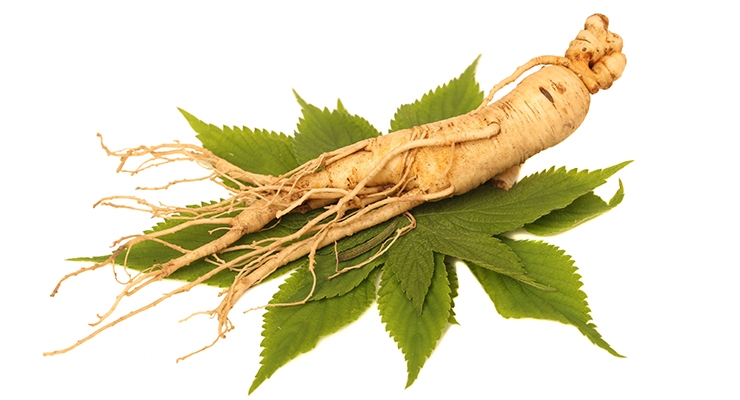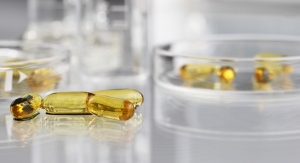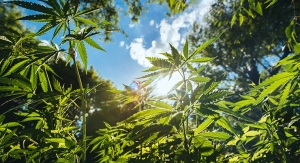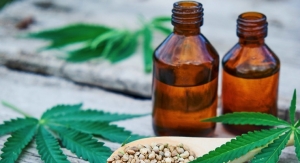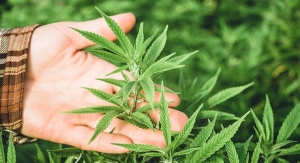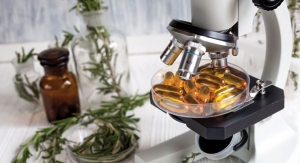By Holly Johnson, PhD, American Herbal Products Association (AHPA)06.03.19
The American Herbal Products Association (AHPA) regularly reviews scientific literature for new research that may be useful to the herbal products and supplement industries. The following are some recent articles published in peer-reviewed journals.
NIR & FT-IR Fingerprinting to Detect Adulteration in Black Pepper
This study combined Near and Fourier-Transform Infrared Spectroscopy with chemometrics to screen for the substitution of black pepper with papaya seeds, chili, and with non-functional black pepper material such as black pepper husk, pinheads, and defatted spent materials. This study showed the huge potential for a fast and rapid screening method that can be used to prove the authenticity of black pepper and detect foreign plant material as well as adulterants from the black pepper plant itself (husk, pinheads, and spent).
Food Control, June 2019
https://doi.org/10.1016/j.foodcont.2018.12.039
Selected Terpenes in Black Pepper Oil for Quality Evaluation
This study investigated oil samples extracted by steam distillation from black pepper seeds to compare the chemical profiles of samples originating from nine major producing countries and to identify potential chemical markers for quality evaluation. The 22 most abundant volatile compounds, mainly terpenes, in these oils were determined by conventional GC/MS analysis. The results demonstrated the potential of using stereospecific compositions as chiral signatures for establishing the authenticity and quality of black pepper oil.
Planta Medica, January 2019
https://doi.org/10.1055/a-0782-0548
Anti-Inflammatory, Anti-Nociceptive Effects of Korean Black Ginseng
This study investigated the anti-inflammatory activities and the anti-nociceptive properties of red ginseng (RG) and black ginseng (BG). The study concluded that BG provides increased anti-inflammatory and anti-nociceptive effects due to the change in ginsenosides profile that occurs in processing. The ginsenoside compositions were confirmed using high-performance liquid chromatography (HPLC) showing the profile of BG is altered with increased processing. BG is a more potent anti-inflammatory agent, possesses anti-nociceptive properties, and has a strong potency compared to NSAIDs.
Phytomedicine, February 2019
https://doi.org/10.1016/j.phymed.2018.09.186
Ginkgo Seed as a Topical Antimicrobial
The authors of this study performed antibacterial assays on various Ginkgo seed extracts against pathogens (Staphylococcus aureus, Cutibacterium acnes, Klebsiella pneumoniae, Acinetobacter baumannii, Streptococcus pyogenes) relevant to skin and soft tissue infections (SSTIs). The study demonstrated that Ginkgo seed coats and immature seeds exhibit antibacterial activity against Gram-positive skin pathogens (C. acnes, S. aureus, and S. pyogenes). The authors also identified one compound tied to the antibacterial activity observed, ginkgolic acid C15:1, and examined its toxicity to human keratinocytes. The study confirmed the relevance of ancient medical texts as leads for the discovery of natural products with antimicrobial activities.
Frontiers in Microbiology, April 2019
https://doi.org/10.3389/fmicb.2019.00775
Efficacy of Hemp Inflorescence Water Extracts to Manage Ulcerative Colitis Symptoms
This study evaluated the protective effects of water extracts of hemp flowers in a model of ulcerative colitis. Extracts from four commercial hemp cultivars were characterized (Futura 75, Kc virtus, Carmagnola Cs, and Villanova), and all tested cultivars displayed similar total phenolic and flavonoid profile. However, Futura 75 water extract displayed a better antioxidant and anti-inflammatory profile. The results supported the potential efficacy of hemp inflorescence water extracts in managing the clinical symptoms related to ulcerative colitis.
Food and Chemical Toxicology, March 2019
https://doi.org/10.1016/j.fct.2019.01.035
Icariin Improves Functional Behavior in a Mouse Model of Traumatic Brain Injury
Icariin, the major active component in Epimedii Herba, was investigated for protective effects following traumatic brain injury (TBI). Icariin-treated groups of mice showed increased recognition index in the novel object recognition test at all doses, providing a basis for using icariin following TBI and suggesting that it could be a candidate for the development of therapeutic agents for functional recovery after TBI.
Planta Medica, October 2018
https://doi.org/10.1055/a-0753-0400
Effects of Kiwifruit Seed Oil on Obesity
The effects of Kiwifruit (Actinidia chinensis Planch) seed oil (KSO) on obesity and its potential mechanism were investigated in high-fat diet (HFD)-induced mice. The study found that KSO supplementation dramatically decreased the Firmicutes-to-Bacteroidetes ratio, suggesting that that long-term supplementation of KSO ameliorates obesity by reducing inflammation, adipose thermogenesis, and gut microbiota dysbiosis.
Food and Chemical Toxicology, March 2019
https://doi.org/10.1016/j.fct.2018.12.046
Stress Reducing Function of Matcha Green Tea
The stress-reducing effect of matcha was examined with an animal experiment and a clinical trial. Anxiety, a reaction to stress, was significantly lower in the test-matcha group than in the placebo group. However, an effective stress-reducing outcome was only possible when the molar ratio of caffeine and epigallocatechin gallate (EGCG) to theanine and arginine was less than two.
Nutrients, October 2018
https://doi.org/10.3390/nu10101468
Alkaloids as Biomarkers for Quality, Efficacy & Safety Assessment of Botanical Ingredients
This review examined the utility of alkaloids as biomarkers and chemical markers in the evaluation of quality, efficacy, and safety of medicinal herbs and their commercial products. The paper discussed the fundamental roles played by alkaloids as chemical and biomarkers in assessing the essential parameters of the quality of botanical ingredients. The review concluded that the use of alkaloids as biomarkers to determine the efficacy-linked pharmacokinetic parameters is limited to studies on human subjects.
Phytomedicine, February 2019
https://doi.org/10.1016/j.phymed.2018.03.064
Increased Bioavailability of Piperine with Nanosuspension Delivery
This study aimed to enhance the pharmaceutical potential and oral bioavailability of piperine, the bioactive constituent of Piper nigrum, using the nanosuspension approach. The optimized nanosuspension showed a better dissolution rate and a 3.65-fold higher oral bioavailability for the P. nigrum nanosuspension than its coarse suspension. These outcomes demonstrated that to obtain an effective therapeutic potential, nanoformulation of medicinal plants is a better alternative than conventional dosage forms.
Planta Medica, October 2018
https://doi.org/10.1055/a-0759-2208
DNA Mini-Barcodes for ID of Species in the Apiaceae
This study addressed one of the limits of DNA barcoding which works well for single-species plant material, but may not work on a mixture of species. Authors designed four degenerated oligonucleotides from ITS1 and ITS2 regions of the nuclear genome to bind to a variety of Apiaceae genera only and not to other genera belonging to different plant families. Family-specific oligonucleotides were able to amplify a diagnostic PCR product from 16 Apiaceae species that, upon sequencing, revealed the identity of the plant it was derived from.
Planta Medica, July 2018
https://doi.org/10.1055/a-0664-0947
Salidroside from Rhodiola Effects Gut Microbiota & Liver Injury
This study investigated the ameliorative effect of salidroside (SAL) from Rhodiola Rosea L. on the intestinal microflora subject to furan-induced liver injury in a mouse model. Authors found the SAL supplement restrained intestinal microbial dysbiosis and systemic low-grade inflammation induced by furan. The study concluded that SAL is a potential therapeutic and prophylactic compound for hepatic diseases.
Food and Chemical Toxicology, March 2019
https://doi.org/10.1016/j.fct.2019.01.007
Holly Johnson, PhD
American Herbal Products Association (AHPA)
Holly E. Johnson PhD, is the chief science officer at the American Herbal Products Association (AHPA) where she is the primary scientific resource for the organization, providing individualized technical guidance to member organizations and helping the herbal industry use the latest science, technology and research to ensure consumers continue to have informed access to innovative, safe and effective herbal products. Dr. Johnson took her PhD in Pharmacognosy at the College of Pharmacy, University of Illinois – Chicago (UIC), under renowned Pharmacognosist and researcher Dr. Norman Farnsworth. She is currently a Research Associate with the National Tropical Botanical Garden and serves on AOAC Stakeholders Panels and Expert Review Panels for Foods and Dietary Supplements. She is a member of the USP Medical Cannabis Expert Panel, the Editorial Board of the AOAC International Journal, and also serves on the Advisory Boards of the American Botanical Council and the American Herbal Pharmacoepia. She can be reached at hjohnson@ahpa.org; 301-588-1171, ext. 103.
NIR & FT-IR Fingerprinting to Detect Adulteration in Black Pepper
This study combined Near and Fourier-Transform Infrared Spectroscopy with chemometrics to screen for the substitution of black pepper with papaya seeds, chili, and with non-functional black pepper material such as black pepper husk, pinheads, and defatted spent materials. This study showed the huge potential for a fast and rapid screening method that can be used to prove the authenticity of black pepper and detect foreign plant material as well as adulterants from the black pepper plant itself (husk, pinheads, and spent).
Food Control, June 2019
https://doi.org/10.1016/j.foodcont.2018.12.039
Selected Terpenes in Black Pepper Oil for Quality Evaluation
This study investigated oil samples extracted by steam distillation from black pepper seeds to compare the chemical profiles of samples originating from nine major producing countries and to identify potential chemical markers for quality evaluation. The 22 most abundant volatile compounds, mainly terpenes, in these oils were determined by conventional GC/MS analysis. The results demonstrated the potential of using stereospecific compositions as chiral signatures for establishing the authenticity and quality of black pepper oil.
Planta Medica, January 2019
https://doi.org/10.1055/a-0782-0548
Anti-Inflammatory, Anti-Nociceptive Effects of Korean Black Ginseng
This study investigated the anti-inflammatory activities and the anti-nociceptive properties of red ginseng (RG) and black ginseng (BG). The study concluded that BG provides increased anti-inflammatory and anti-nociceptive effects due to the change in ginsenosides profile that occurs in processing. The ginsenoside compositions were confirmed using high-performance liquid chromatography (HPLC) showing the profile of BG is altered with increased processing. BG is a more potent anti-inflammatory agent, possesses anti-nociceptive properties, and has a strong potency compared to NSAIDs.
Phytomedicine, February 2019
https://doi.org/10.1016/j.phymed.2018.09.186
Ginkgo Seed as a Topical Antimicrobial
The authors of this study performed antibacterial assays on various Ginkgo seed extracts against pathogens (Staphylococcus aureus, Cutibacterium acnes, Klebsiella pneumoniae, Acinetobacter baumannii, Streptococcus pyogenes) relevant to skin and soft tissue infections (SSTIs). The study demonstrated that Ginkgo seed coats and immature seeds exhibit antibacterial activity against Gram-positive skin pathogens (C. acnes, S. aureus, and S. pyogenes). The authors also identified one compound tied to the antibacterial activity observed, ginkgolic acid C15:1, and examined its toxicity to human keratinocytes. The study confirmed the relevance of ancient medical texts as leads for the discovery of natural products with antimicrobial activities.
Frontiers in Microbiology, April 2019
https://doi.org/10.3389/fmicb.2019.00775
Efficacy of Hemp Inflorescence Water Extracts to Manage Ulcerative Colitis Symptoms
This study evaluated the protective effects of water extracts of hemp flowers in a model of ulcerative colitis. Extracts from four commercial hemp cultivars were characterized (Futura 75, Kc virtus, Carmagnola Cs, and Villanova), and all tested cultivars displayed similar total phenolic and flavonoid profile. However, Futura 75 water extract displayed a better antioxidant and anti-inflammatory profile. The results supported the potential efficacy of hemp inflorescence water extracts in managing the clinical symptoms related to ulcerative colitis.
Food and Chemical Toxicology, March 2019
https://doi.org/10.1016/j.fct.2019.01.035
Icariin Improves Functional Behavior in a Mouse Model of Traumatic Brain Injury
Icariin, the major active component in Epimedii Herba, was investigated for protective effects following traumatic brain injury (TBI). Icariin-treated groups of mice showed increased recognition index in the novel object recognition test at all doses, providing a basis for using icariin following TBI and suggesting that it could be a candidate for the development of therapeutic agents for functional recovery after TBI.
Planta Medica, October 2018
https://doi.org/10.1055/a-0753-0400
Effects of Kiwifruit Seed Oil on Obesity
The effects of Kiwifruit (Actinidia chinensis Planch) seed oil (KSO) on obesity and its potential mechanism were investigated in high-fat diet (HFD)-induced mice. The study found that KSO supplementation dramatically decreased the Firmicutes-to-Bacteroidetes ratio, suggesting that that long-term supplementation of KSO ameliorates obesity by reducing inflammation, adipose thermogenesis, and gut microbiota dysbiosis.
Food and Chemical Toxicology, March 2019
https://doi.org/10.1016/j.fct.2018.12.046
Stress Reducing Function of Matcha Green Tea
The stress-reducing effect of matcha was examined with an animal experiment and a clinical trial. Anxiety, a reaction to stress, was significantly lower in the test-matcha group than in the placebo group. However, an effective stress-reducing outcome was only possible when the molar ratio of caffeine and epigallocatechin gallate (EGCG) to theanine and arginine was less than two.
Nutrients, October 2018
https://doi.org/10.3390/nu10101468
Alkaloids as Biomarkers for Quality, Efficacy & Safety Assessment of Botanical Ingredients
This review examined the utility of alkaloids as biomarkers and chemical markers in the evaluation of quality, efficacy, and safety of medicinal herbs and their commercial products. The paper discussed the fundamental roles played by alkaloids as chemical and biomarkers in assessing the essential parameters of the quality of botanical ingredients. The review concluded that the use of alkaloids as biomarkers to determine the efficacy-linked pharmacokinetic parameters is limited to studies on human subjects.
Phytomedicine, February 2019
https://doi.org/10.1016/j.phymed.2018.03.064
Increased Bioavailability of Piperine with Nanosuspension Delivery
This study aimed to enhance the pharmaceutical potential and oral bioavailability of piperine, the bioactive constituent of Piper nigrum, using the nanosuspension approach. The optimized nanosuspension showed a better dissolution rate and a 3.65-fold higher oral bioavailability for the P. nigrum nanosuspension than its coarse suspension. These outcomes demonstrated that to obtain an effective therapeutic potential, nanoformulation of medicinal plants is a better alternative than conventional dosage forms.
Planta Medica, October 2018
https://doi.org/10.1055/a-0759-2208
DNA Mini-Barcodes for ID of Species in the Apiaceae
This study addressed one of the limits of DNA barcoding which works well for single-species plant material, but may not work on a mixture of species. Authors designed four degenerated oligonucleotides from ITS1 and ITS2 regions of the nuclear genome to bind to a variety of Apiaceae genera only and not to other genera belonging to different plant families. Family-specific oligonucleotides were able to amplify a diagnostic PCR product from 16 Apiaceae species that, upon sequencing, revealed the identity of the plant it was derived from.
Planta Medica, July 2018
https://doi.org/10.1055/a-0664-0947
Salidroside from Rhodiola Effects Gut Microbiota & Liver Injury
This study investigated the ameliorative effect of salidroside (SAL) from Rhodiola Rosea L. on the intestinal microflora subject to furan-induced liver injury in a mouse model. Authors found the SAL supplement restrained intestinal microbial dysbiosis and systemic low-grade inflammation induced by furan. The study concluded that SAL is a potential therapeutic and prophylactic compound for hepatic diseases.
Food and Chemical Toxicology, March 2019
https://doi.org/10.1016/j.fct.2019.01.007
Holly Johnson, PhD
American Herbal Products Association (AHPA)
Holly E. Johnson PhD, is the chief science officer at the American Herbal Products Association (AHPA) where she is the primary scientific resource for the organization, providing individualized technical guidance to member organizations and helping the herbal industry use the latest science, technology and research to ensure consumers continue to have informed access to innovative, safe and effective herbal products. Dr. Johnson took her PhD in Pharmacognosy at the College of Pharmacy, University of Illinois – Chicago (UIC), under renowned Pharmacognosist and researcher Dr. Norman Farnsworth. She is currently a Research Associate with the National Tropical Botanical Garden and serves on AOAC Stakeholders Panels and Expert Review Panels for Foods and Dietary Supplements. She is a member of the USP Medical Cannabis Expert Panel, the Editorial Board of the AOAC International Journal, and also serves on the Advisory Boards of the American Botanical Council and the American Herbal Pharmacoepia. She can be reached at hjohnson@ahpa.org; 301-588-1171, ext. 103.

